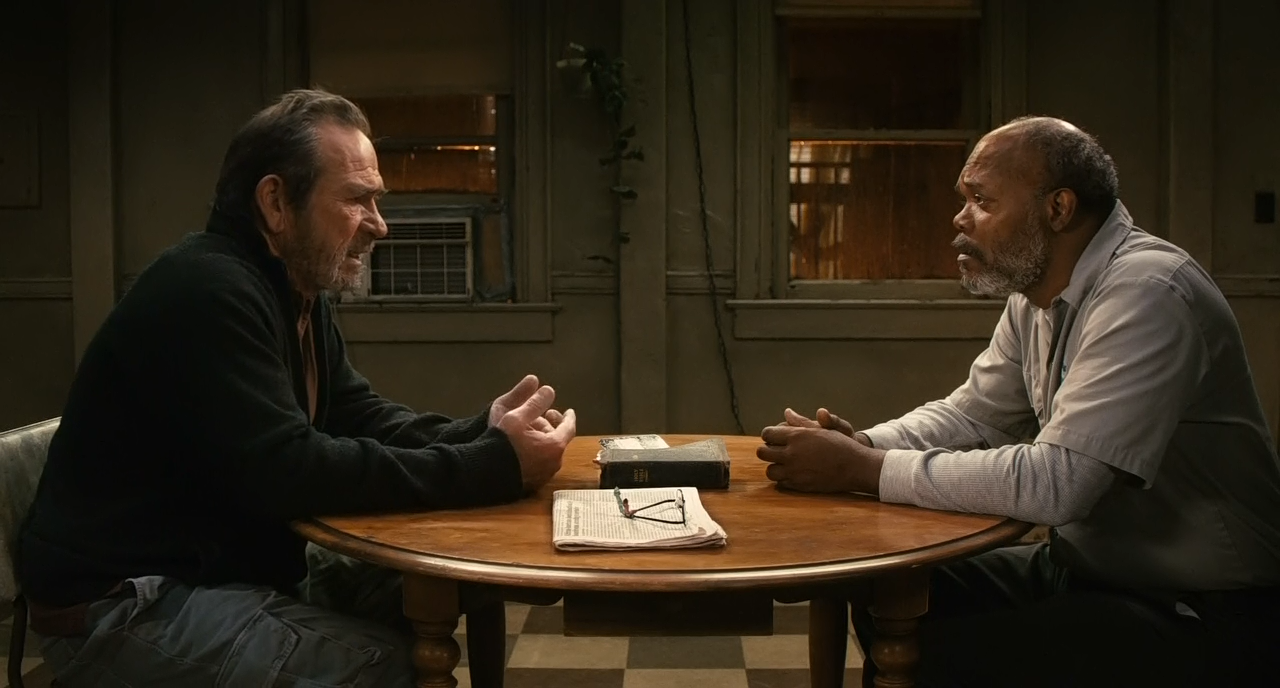Sunset Limited (2011)
May 16, 2025

I ain’t got an original thought in my head, if it aint got the lingering scent of divinity to it, i aint interested in it.
This film feels inspired by My Dinner with Andre. Like that movie, it consists of two people talking for 1 hour and 30 minutes in a single room, discussing life and meaning.
Maybe I’m just being paranoid because I recently read the paper The Ground of Being, but at times it feels like the movie is subtly moving toward the idea of Jesus as Grund (ground/foundation).
It also touches on an interesting philosophical problem: If you’re an atheist and truly believe that everything is just matter, explainable by rational laws—that the universe is not mysterious—what could possibly convince you otherwise? Suppose Jesus appeared to you directly and performed wonders that defy everything you know to be true. Would you then believe in the divine? Or would you assume you’re experiencing psychosis? How would you ever tell the difference?
Another interesting idea discussed is that of the “man of the underground”: the enlightened, rational man who understands the world is cold, distant, and meaningless. He sees everything as ultimately without purpose—a worldview steeped in misery and nihilism. But he doesn’t turn away from it. In fact, he embraces it. He feels, in some twisted way, superior to those who haven’t realized this “truth.” “Yes, I may be miserable, but at least I know the truth. I am right.” There’s a kind of pride in that outlook—an arrogance he might never admit. But is that really the right path? It feels more like a cliché of how not to live—a recipe for maximizing misery, for pushing away everything that could create a sense of connection to the world.
The movie also makes an important point: If you feel that your life is not worth living, and you’ve already tried therapy, medication, and other conventional help, maybe it’s worth considering a drastic lifestyle change—a new job, a spiritual path, even mysticism. How can you think of ending your life before trying those things? Suicide should be a last resort—not something considered just because the “easy” things didn’t help.
The film also touches on a Heideggerian problem: the tendency to view the world purely through an object–subject lens. The universe becomes nothing but a set of objects to study and manipulate, which leads to nihilism and strips the world of meaning. By denying one’s own Dasein, one’s lived, subjective experience, we also deny the possibility of meaning itself.
One final thing I want to mention: the symbolic use of color is noteworthy. The Black man, who represents religion, theology, and Kierkegaard’s leap of faith (although this only fits to a degree), is dressed in white. The white man, who represents nihilism and pessimism inspired by Schopenhauer, is dressed in black. Striking visual choice.
Huge respect to the film for how it ends. 7/10.
Edit: One more thing came to mind—the religious man mentions that the only thing he truly misses about his former lifestyle is music. I believe there’s a deeper reason for this. Listening to music one loves is often a gateway to transcendent experiences—moments that might otherwise only be accessed through religion. In this sense, this represents a kind of journey: from more earthly forms of transcendence to the divine transcendence sought through asceticism, prayer, and deep religious study.
